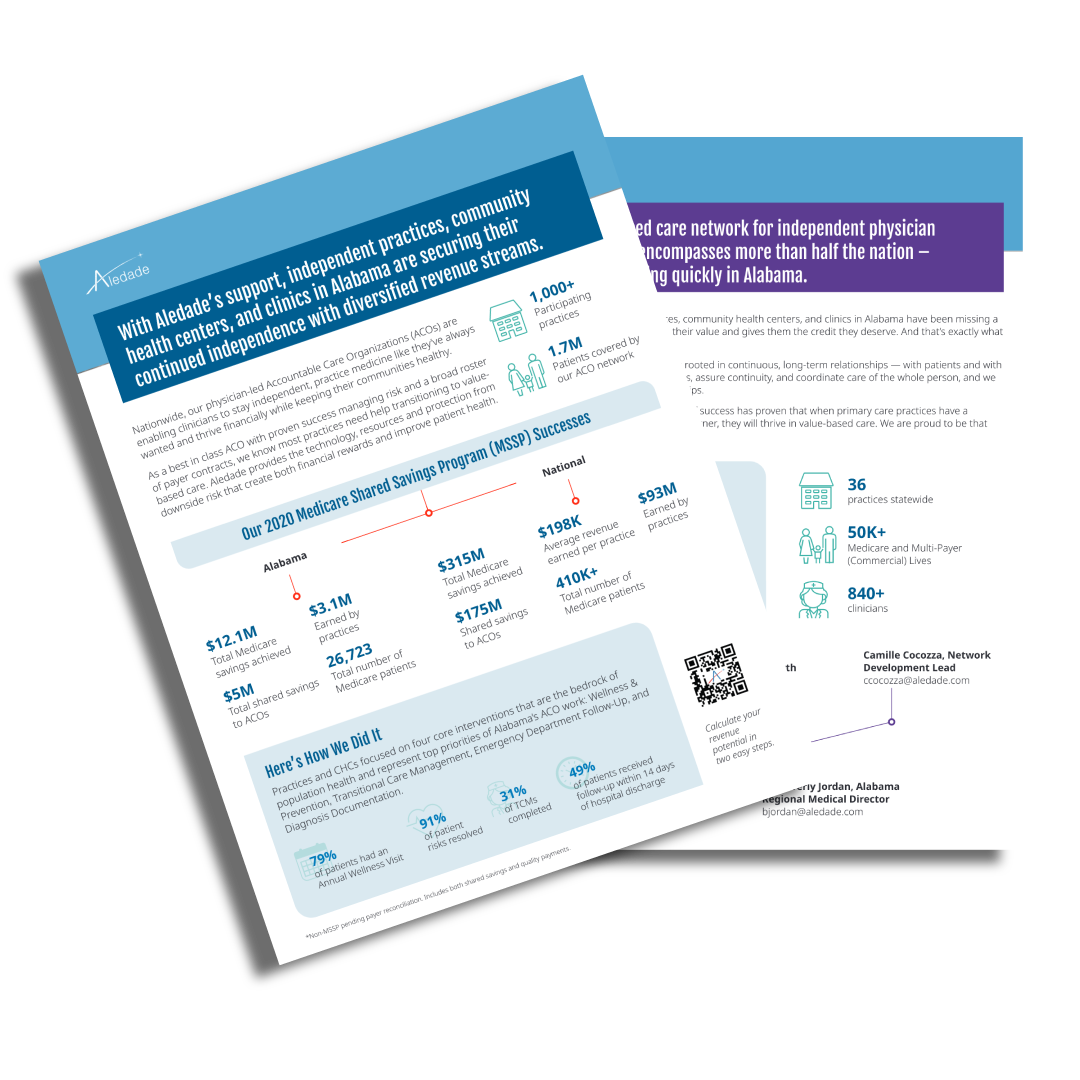Value-based care in Delaware starts with your local team.
As one of Aledade’s original ACO markets, Delaware remains one of our fastest-growing and most successful ACOs with the advantage of seasoned professionals to provide tailored support, resources and tools to local practices and community health centers.
Get in touch with our Delaware team
Set up your practice for success by joining an Aledade ACO. Provide your patients with the right care, at the right time and thrive financially.









